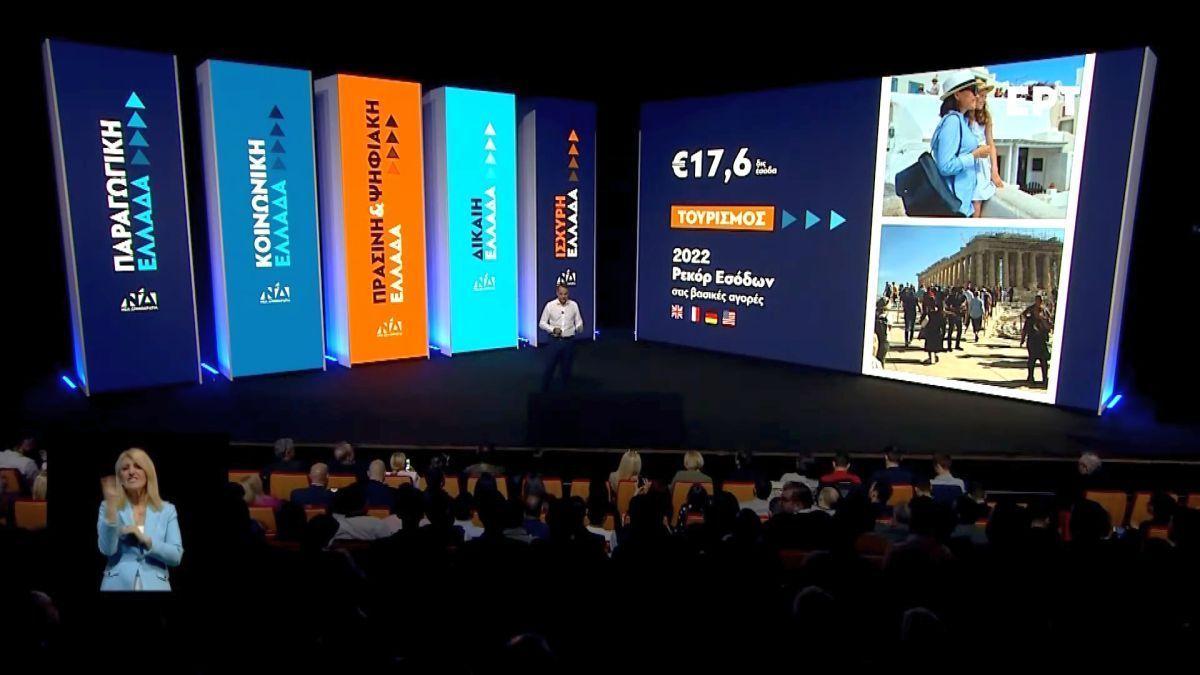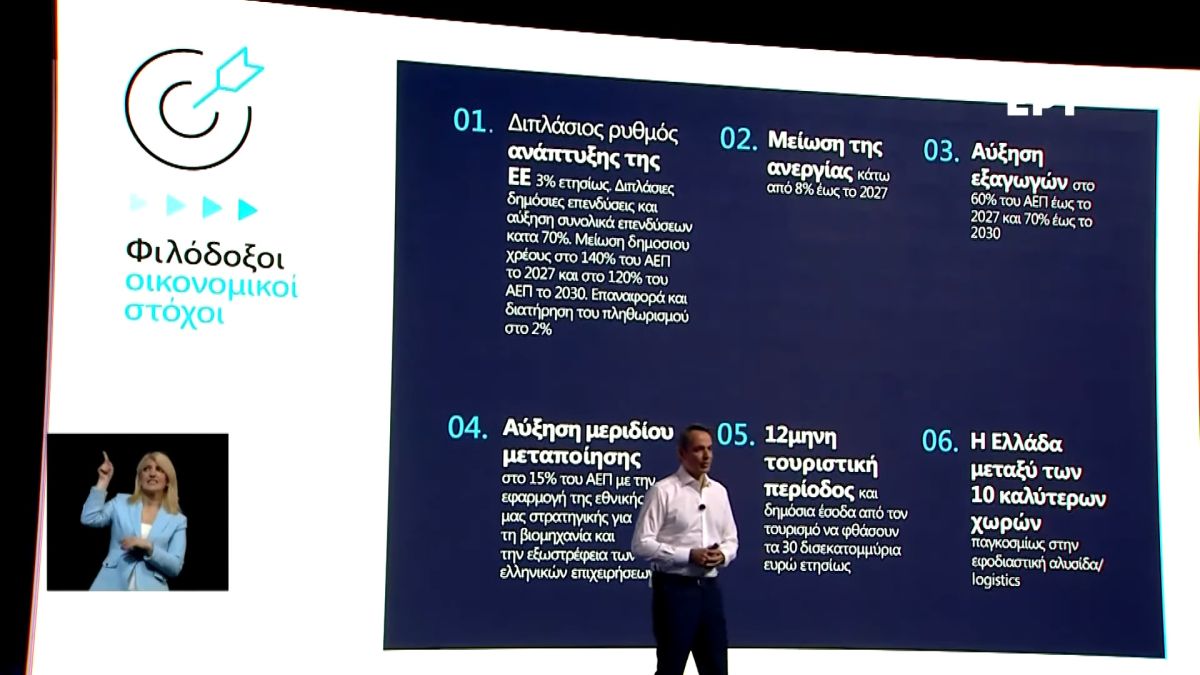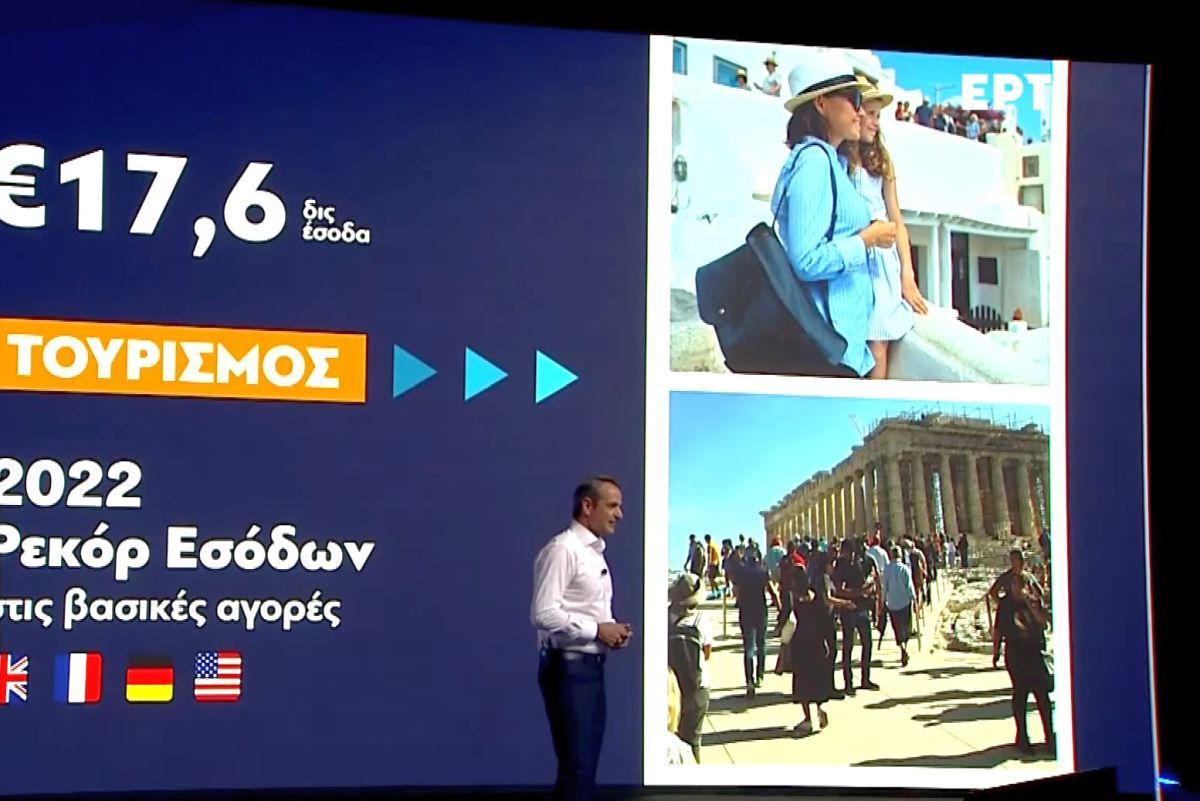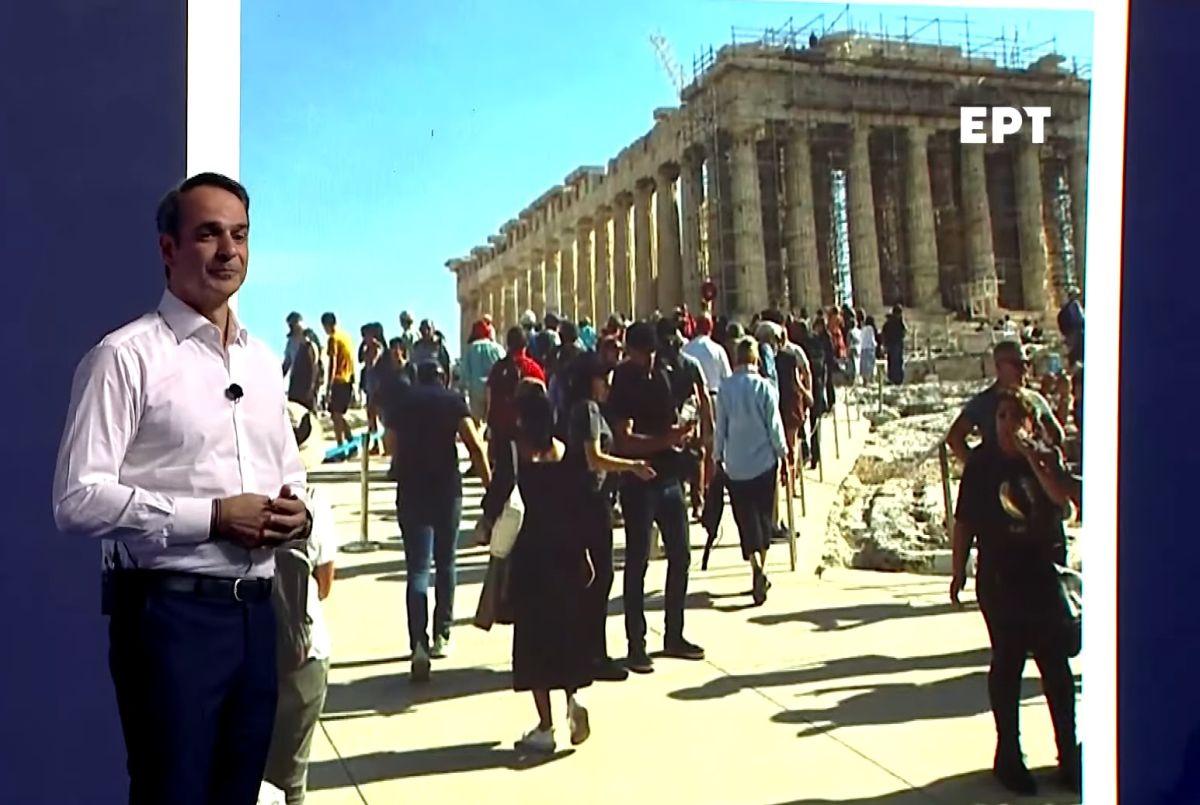Greek PM Presents Tourism Goals: 12-month Season, Annual Revenue of €30bn

Greek Prime Minister Kyriakos Mitsotakis presenting the New Democracy program for the new four-year period at the Cultural Center Hellenic Cosmos in Athens.
With elections in Greece just around the corner, Greek Prime Minister Kyriakos Mitsotakis on Wednesday said the tourism sector is included in the government’s plan for development should the ruling conservative New Democracy party secure a second term.
Greece will hold general elections on May 21.
Speaking from the stage of the Cultural Center Hellenic Cosmos in Athens, PM Mitsotakis presented the New Democracy program for the new four-year period.
Regarding tourism, the Greek PM essentially set two goals:
– for the country to overcome seasonality and offer a product that will be available all year round, and
– for annual revenue from tourism to reach 30 billion euros, i.e. approximately 12 billion euros more than Greece earned in 2019, which is considered a milestone year for arrivals and travel receipts.
“Speaking of development, I must mention our tourism – an industry that went through an unprecedented ordeal during the years of the pandemic. Especially in 2020, when practically the world stopped traveling, we found ourselves facing the absolute collapse of the industry, which was and is to a large extent the ‘steam engine’ of the Greek economy,” Mitsotakis said.
The PM added that with coordinated actions by utilizing European programs and using resources from the state budget, the Greek government supported the tourism industry.
Mitsotakis stressed that the government “dared” to rise to the challenge and undertake a series of initiatives that saw Greece among the first countries to open its tourism market during the pandemic.
“So that we are pleased to say that 2022 was a record year of revenue from our core markets and 2023 is predicted to be even better,” he said.
Highlighting that the country’s success was an accomplishment and “did not happen by chance”, the PM said the progress the government achieved in tourism is linked in turn to a series of important investments that are being made in tourism infrastructure but also through the improvement of the salaries of the industry’s workers.
“We have the possibility to significantly improve our income from tourism and I believe that 2023 will give us a foretaste of what exactly we can achieve from the industry, which today is arguably the most important for the Greek economy,” he said.
Tourism is among New Democracy’s financial goals
Mitsotakis then presented a slide with New Democracy’s financial goals for the next four years and tourism is among them.
“We are getting close to the goal… Greece to become a destination open all 12 months of the year,” the PM said, adding that with an extension of the tourism season, tourism workers will be employed for a longer period of time.
“And we will reach the goal of 30 billion euros per year in tourism revenue… The goal is achievable and we can achieve it,” Mitsotakis said.

Greek Prime Minister Kyriakos Mitsotakis presenting New Democracy’s financial goals for the next four years.
New Democracy’s financial goals include doubling public investment and increasing total investment by 70 percent, reducing unemployment below 8 percent by 2027, increasing exports to 60 percent of GDP by 2027 and 70 percent by 2030 and including Greece among the 10 best countries worldwide in logistics.
The Greek PM also referred to New Democracy’s “non-negotiable goal” to increase wages by 25 percent within four years, so that the average wage reaches 1,500 euros.
Overall, the New Democracy program for the next four years is based on a five-pronged plan with priorities focused on reducing taxes and increasing incomes (Productive Greece), improving the health system and strengthening public education (Social Greece), integrating 90 percent of the state’s public services into Gov.gr (Digital and Green Greece), clearing pending cases in the judicial system (Fair Greece) and better guarding the borders by extending the fence in the Evros area, restructuring the Greek police force and the fire department (Strong Greece).






